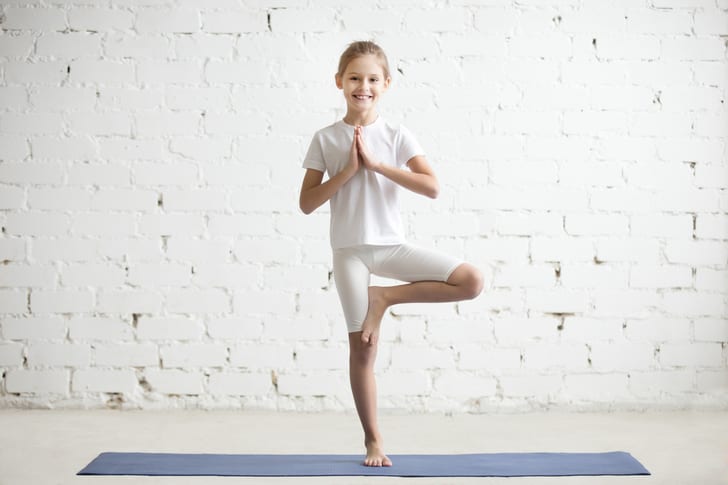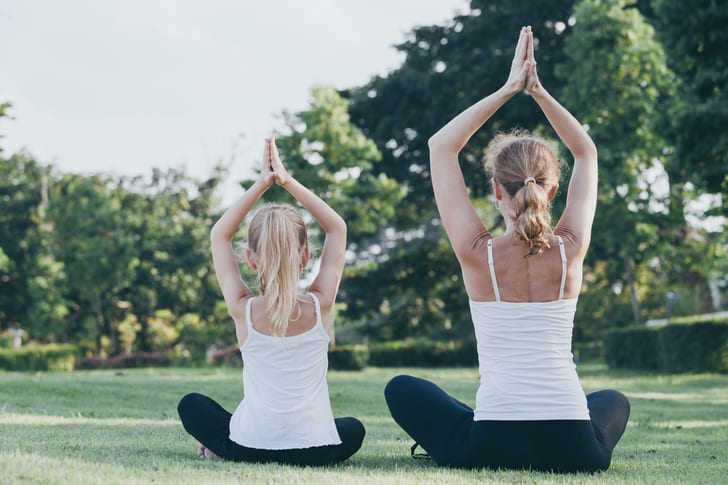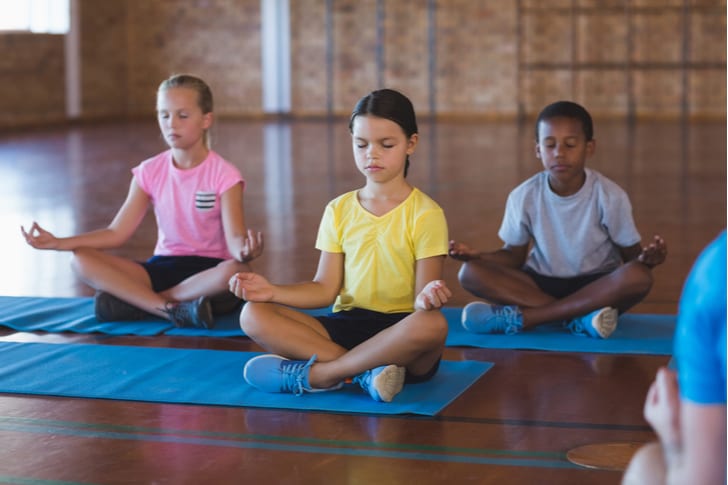Is it the world that’s too busy, or is it our minds? While the globe keeps on turning, we always find ourselves doing this or that. Do you remember when you last took five minutes off your schedule to just pause and breathe? Or your child had a care-free moment beside the playtime at school? An individual, be it an adult or a kid, may work on an activity, but their mind might be somewhere else; this is why experts recommend practicing mindfulness.

A happy child practicing mindfulness
What Is Mindfulness?

Mother and daughter doing yoga at home
It is the ability to be completely present in the now – where you are, what you are doing. Mindfulness is something that every human being already has, but isn’t aware of it because of not exercising it daily. The objective is to wake your physical, emotional, and mental process at the same time.
Now, this might be difficult to teach a kid with a short attention-span, but if you can have them sit down at home, then teaching them the beautiful process of mindfulness could become achievable.
What’s the Use of Mindfulness?

Practicing mindfulness at school for better performance
The benefits of this meditation range from trivial ones to those that will bring a significant change. Most worthwhile is learning to control your temper and developing the ability to avert depression.
Many relationships sail in the sea of conflicts because of anger-based decisions. The result is the end of all ties. Another reason for this clutter could be chronic depression, which leads to over-thinking, causing the brain to be a mess.
When it comes to children, implementing these changes in the daily routine helps enhance their self-regulation, organizational skills, and teaches them to get along with other children as well.
How to Practice Mindfulness?
Executing this exercise is, rather, an easy thing to do. The activity pours in better results when practiced at least five days a week for twenty minutes each time.
The easiest drill is to sit down somewhere comfortable, close your eyes, and breathe normally. All you have to do is calm yourself. Although, during this time, the mind can wander off to pondering, which is pretty normal. When this happens, snap out of the distraction and slowly bring yourself back to focusing on your breathing.
Another way is to go outside on walks. This lesson is for kids, in particular. Ask your child about the sounds they hear, the interesting stuff they do, and what those things remind them of.
The sole focus should be on what they’re doing at the moment. For example, while having dinner, the children shouldn’t watch TV. Engaging with the food and keeping track of how much they have eaten is essential; otherwise,the children will be bound to over-eat that could lead to other health-related problems. Increase their concentration of attention, which will slowly lead your child to have stronger willpower and better sleep.
